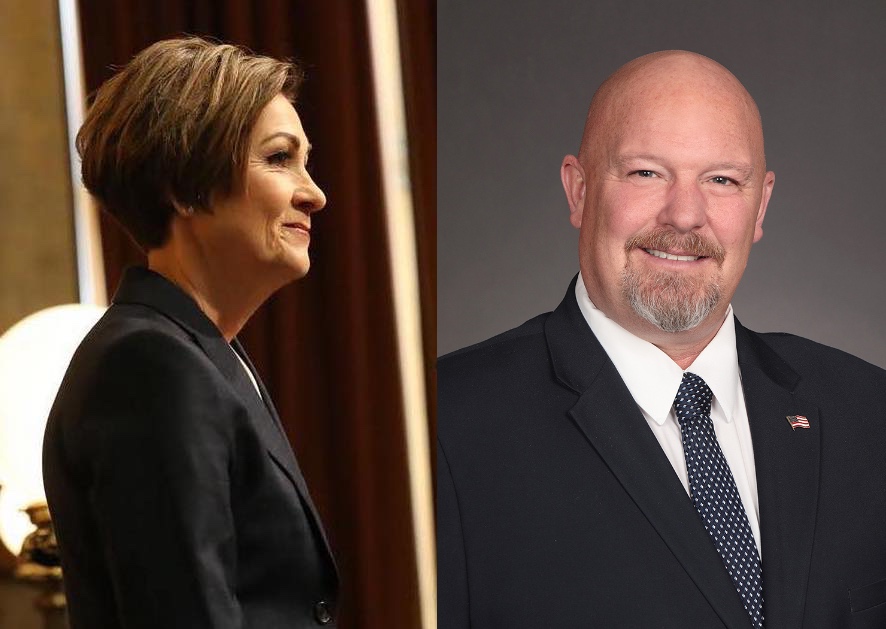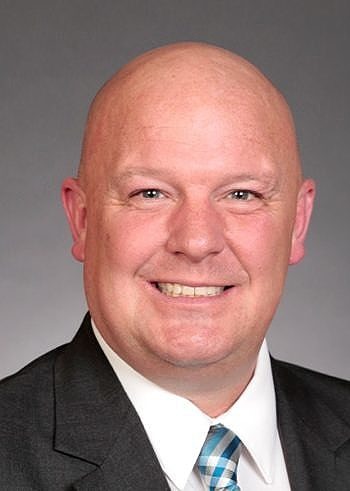I live in Iowa House district 59, which includes Windsor Heights, Clive and parts of West Des Moines. Republicans have held this seat since before I was born, but I am convinced that Windsor Heights Mayor Jerry Sullivan has a strong chance to flip this district for the Democrats.
Judging from two calls I received in the past 48 hours, some Republicans are worried about that possibility too.
On Sunday evening I got a robocall from “Survey 2000” claiming to have a brief 30-second survey for me to answer. The first question was whether I planned to vote in the June 3 Democratic primary. The second was whether I planned to vote for Jerry Sullivan or Mark Matel in the primary. Then the push-polling started.
I jotted down what I could with pencil and paper, but the robocall voice went fast, so I don’t have anything close to the verbatim wording of the call.
One question asked whether a candidate’s position on a woman’s right to choose was important, and followed up with some language suggesting that Jerry Sullivan does not support that right.
The next question asked whether I thought elected officials should keep our taxes low, and followed up by saying that Windsor Heights property taxes were very high while Sullivan was mayor.
Finally, there was a question and follow-up information relating to Sullivan’s support for last summer’s Project Destiny referendum, which failed by a huge margin.
This call had all the telltale marks of a push-poll. No demographic information was collected, so the results could not be analyzed in any useful way by a campaign or a public polling firm. Only negative information about one candidate was pushed. In contrast, a legitimate message-testing poll, such as the one commissioned by Congressman Leonard Boswell’s campaign in January, will test positive and negative messages about one or more candidates.
I jotted down the phone number given at the end of the call. It went by fast, but I think I wrote it down correctly: 703-263-2511. I tried to call that number and got only busy signals.
On Monday at about 4:15 pm, I got a different robocall. This was not a fake poll, but it was otherwise similar to the call I received Sunday night.
This time a woman’s voice said she was calling from “Survey 2008” (which was pronounced “Survey two zero zero eight”) with important information about the primary coming up on June 3.
First, she said that Windsor Heights property taxes went from one of the lowest to the second-highest in the Des Moines metro area while Jerry Sullivan was mayor.
Then, she said that Sullivan worked to pass Project Destiny, which was supported by wealthy business interests.
Then, she said Sullivan was believed to support ending a woman’s right to choose an abortion.
The phone number given at the end of this call was 703-263-1908, which probably is a different phone line at the same office that produced the call I got Sunday evening.
First things first: I contacted Sullivan’s campaign manager and confirmed that the candidate is pro-choice. There is no basis for these calls suggesting that he would seek to end a woman’s right to choose. I suspect that they tried that line because Sullivan is Catholic and has a Catholic-sounding name, and they figured this argument would hurt him with Democratic primary voters.
A neighbor called me yesterday to report getting a nasty robocall about Sullivan. When we compared notes, it was obviously the same call. She assumed that Sullivan’s opponent in the Democratic primary, Mark Matel, was behind the call, but my hunch is that these calls were not arranged by any of the rival candidates for this seat.
I doubt that either Matel or Republican Susan Murphy have the resources to fund this kind of operation, even if they wanted to. I assume that Chris Hagenow, the favorite to win the Republican nomination, is focused on winning his primary race, although he may have raised enough money to fund calls like these.
The language on taxes used in both calls suggests to me that a Republican interest group is behind them. Iowans for Tax Relief has endorsed Hagenow, so that group might be a prime suspect. I am sure they would rather not see the relatively inexperienced Hagenow run against someone with Sullivan’s background in business and public service.
It’s also possible that the Iowa Republican Party decided to spend money on roughing up Sullivan in the Democratic primary. Presumably the seat would be easier for Republicans to hold if Sullivan loses the primary, or if they can damage his reputation among the loyal Democratic voters who show up for primaries.
The phone numbers given at the end of the calls should point toward the firm that produced them, but that would not necessarily reveal what candidate or entity paid for the calls.
If you receive calls pushing negative information on any candidate this year, please take as detailed notes as you can. That’s easier when there is a live caller, because you can ask him or her to repeat the questions. Stay on the line until the end of the call and write down the phone number, which they are legally required to give. Then contact the campaign of the candidate being attacked in the call, so they know right away what is going on.
I also encourage Bleeding Heartland users to put up a diary at this blog if you receive any push-poll or obnoxious robocalls this year.



